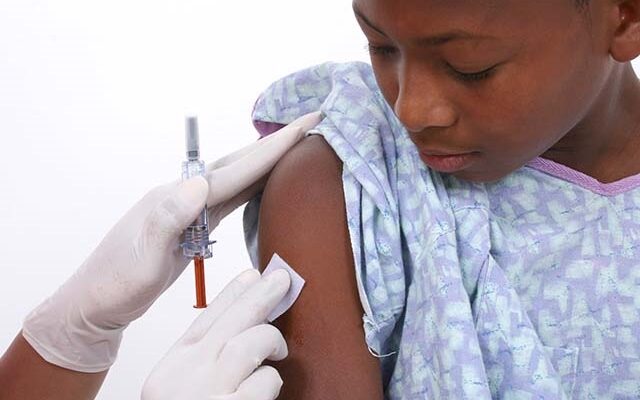

Medical Officer of Health for Portland Dr Sharon Lewis is imploring persons to adhere to the immunisation schedule to ensure that they receive the most effective protection against a range of serious diseases.
Her call is in response to the recent resurgence of vaccine-preventable diseases, such as measles and yellow fever, in several countries.
Dr Lewis, who was addressing a recent meeting of the Portland Municipal Corporation in Port Antonio, said reports indicate that there have been 702 cases of measles in the United States (US) with 91 persons hospitalised.
“Measles can be prevented by ensuring that at least 95 per cent of the population is immunised against the disease. I encourage us not to let our guard down but rather to ensure that all our children, youths and adults are appropriately immunised,” she said.

Jamaica provides routine vaccination against 11 serious diseases. These are Tuberculosis, Poliomyelitis (Polio), Diphtheria, Pertussis (Whooping Cough), Haemophilus Influensa type b, Tetanus (Lock Jaw), Hepatitis B, Measles, Mumps and Rubella and Human Papillomavirus (HPV).
Sticking to the schedule ensures that children are vaccinated on time, minimising the risk of hospitalisation, disability or even death.
In the case of yellow fever, the Pan American Health Organisation (PAHO) has reported an increase in cases of the disease in Latin American countries since the start of the year.
Dr Lewis said the affected countries have seen a relatively high mortality rate.
While not on the routine immunisation schedule, the yellow fever vaccine is required for travellers arriving from countries with a risk of transmission, or who have a transit through such countries for more than 12 hours.
“The requirement is for persons to get yellow fever vaccine at least 10 days prior to travel to a country where the yellow fever virus is circulating,” Dr Lewis noted. Yellow fever is an acute virus that is transmitted to humans by the bite of infected mosquitoes such as the Aedes aegypti, the same vector that transmits the chikungunya, dengue and Zika viruses.
Mostly found in the tropics of South America and Africa, yellow fever is a high-impact, high-threat disease, with risk of international spread, which represents a potential threat to global health security.
Dr Lewis said education sessions have been conducted on the importance of immunisations in preventing infectious diseases, particularly given cases in neighbouring countries. “It is less costly to prevent these diseases than to treat them,” she pointed out.







Comments